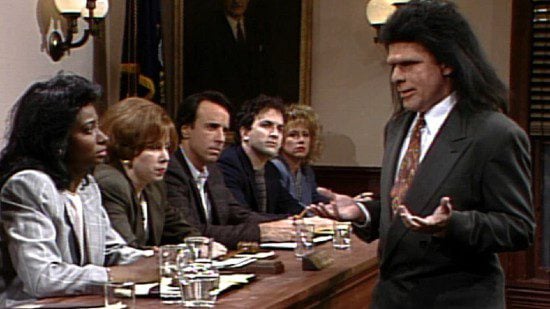“It is full of interest. It has noble poetry in it; and some clever fables; and some blood-drenched history; and some good morals; and a wealth of obscenity; and upwards of a thousand lies.” — Mark Twain, Letters From the Earth
I did a disservice to Richard Beck’s chapel lecture on Judges 19 by linking to it the other day without more context. Thanks to Dr. Beck for providing some of that missing context and engaging in a friendly discussion here in comments.
Beck’s take on the Gospels’ shaping of “the Christian imagination” reminds me — yes, again — of George Orwell’s comment on Charles Dickens:
Where he is Christian is in his quasi-instinctive siding with the oppressed against the oppressors. As a matter of course he is on the side of the underdog, always and everywhere.
For Orwell, as for Beck, the claim isn’t that this “quasi-instinctive siding with the oppressed” is exclusively a Christian trait or a matter of Christian exceptionalism. Orwell shared the same instinct himself, and he was certainly not a religious man. But Orwell regarded it as a trait that is or it ought to be a characteristic of Christians.
“Siding with the oppressed” is part of what I mean when I argue for reading the entire Bible with a Jesus-based or “Christocentric” hermeneutic. That’s how I want to read that monstrous story in Judges 19 as well as all such texts of terror or clobber-verses or blood-drenched obscenities — whether in Joshua, in Ezekiel, or in Paul’s epistles.
The complain some of my fellow evangelicals have with such an approach is that it elevates some parts of the Bible above others. Yes. Yes, it does, and yes, it should. That’s what “you have heard that it was said … But I say to you” means.
Beck and Tony Jones have both recently written interesting and thought-provoking things about René Girard’s ideas about the scapegoat theory of atonement. This is having the annoying effect of nudging me toward actually reading Girard, who seems fascinating but not exactly like light reading. Anyone else want to nudge me further in that direction? If so, where would you recommend starting?
Jones has a whole series of recent posts discussing theories of atonement — a topic he’s making more interesting than I usually find it. It’s one of those topics on which people tend to present speculation with an angry certainty. The various competing theories don’t tend to be viewed as fragmentary or complementary, but as exclusive — if it’s partly this, then it cannot also be partly that. So when I wind up agreeing with several different competing theories, the proponents of those theories tend to get mad at me.
They also seem to forget that it doesn’t really matter if any of us understands the mechanics of atonement. I don’t need to know how it works, just that it works. Kind of like my Mac.
That’s not to say that I don’t have any interest in such theories — just that I don’t think Christians’ discussions of them ought to be as urgent and as fraught as they tend to be.
The one such theory I don’t much care for is the one most emphasized at the church and Christian school I grew up in. It’s the idea of “penal substitutionary atonement.” Jones doesn’t seem to like it much either. This post from Brian McLaren offers a good summary of why I think it’s a harmful insult to God:
It posits that God is planning eternal conscious torment for all human beings, except those who gain an exemption through some facet of the Christian religion (including, for some, believing in this theory). God cannot forgive, the theory (in at least some of its versions) posits, without inflicting pain on someone. When you believe that the greatest existential threat to a human being is God venting God’s wrath on that human being — whether that wrath is deemed just or not — you put human beings in two categories: the saved and the damned, the beloved and the hated. …
How different if we believe that the greatest existential threat to human beings is human evil … violence, greed, lust, fear, pride, anger, superiority, hate, malice, apathy, haste, rage, etc. If that’s the case, then God enters the picture as the one trying to save us from the destructive effects of our own evil. God is not our greatest threat, but rather our greatest hope. God is not violent in nature and does not inflict harm … but rather is the model of nonviolence, forgiveness, reconciliation, pardon, grace, and kindness, inviting our imitation.












